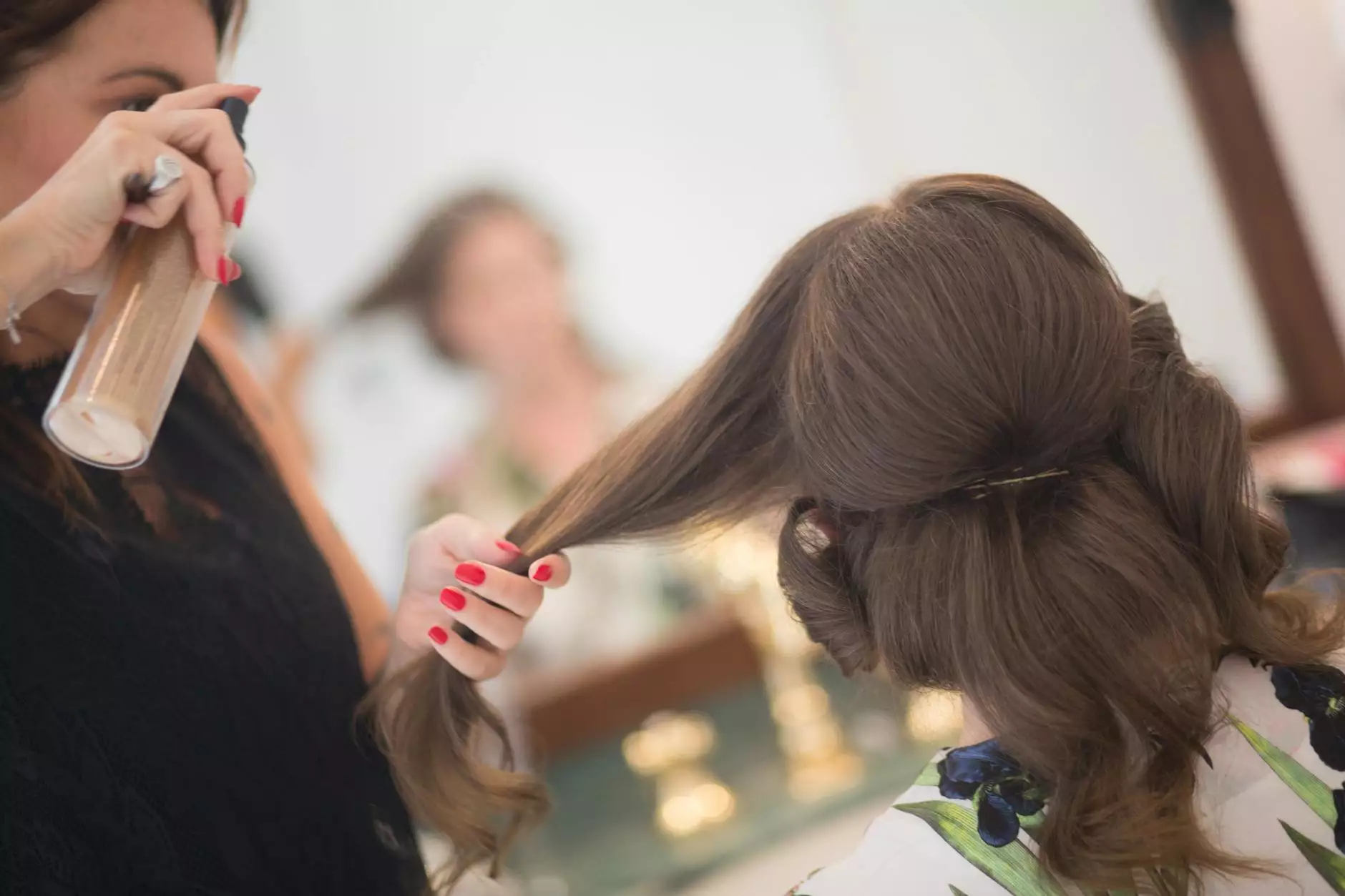How to Maintain Good Hair Health: Tips for Luxurious Locks

Achieving and maintaining good hair health is essential for everyone who desires beautiful, shiny, and vibrant hair. Whether you have naturally curly locks or straight strands, understanding how to properly care for your hair can make a significant difference in its appearance and overall well-being. In this comprehensive guide, you'll discover the best practices and tips on how to maintain good hair health that can help you achieve the stunning hair you've always wanted.
Understanding Your Hair Type
The first step in your journey to good hair health is understanding your specific hair type. Hair can generally be categorized into four types:
- Type 1: Straight hair that tends to be shiny and resistant to curling.
- Type 2: Wavy hair, which can be prone to frizz and may require more moisture.
- Type 3: Curly hair that can vary from loose curls to tight ringlets and tends to be drier.
- Type 4: Coily and kinky hair that is very dry and often requires significant hydration.
By identifying your hair type, you can select products that cater specifically to your needs, which is crucial in maintaining good hair health.
Building a Nourishing Hair Care Routine
A personalized hair care routine is vital for good hair health. Here are key components to consider:
1. Choose the Right Shampoo and Conditioner
Selecting the right shampoo and conditioner is foundational to your hair care routine. Look for sulfate-free options that hydrate your hair without stripping it of natural oils. Depending on your hair type, you may also want to choose products specifically formulated for your hair's needs, such as:
- Moisturizing shampoos and conditioners for dry or curly hair.
- Volumizing products for fine or limp hair.
- Color-safe formulas for dyed hair to preserve color vibrancy.
2. Regular Washing Schedule
How often you wash your hair depends on your hair type and lifestyle. Generally:
- Straight hair: Every 1 to 3 days.
- Wavy hair: Every 2 to 4 days.
- Curly hair: 2 to 7 days, depending on moisture levels.
- Coily hair: Once a week or less.
Overwashing can lead to dryness and damage, while underwashing can lead to buildup and greasiness.
3. Deep Conditioning Treatments
Incorporate deep conditioning treatments into your routine at least once a week. These treatments penetrate the hair shaft to provide intensive hydration and repair. Look for masks that contain:
- Natural oils like argan, coconut, or olive oil.
- Amino acids for strengthening.
- Humectants to draw moisture into the hair.
4. Regular Trims
Frequent trims are essential to maintaining good hair health. Aim for a trim every 6 to 8 weeks to remove split ends and promote healthy growth.
Protecting Your Hair from Damage
1. Heat Protection
Excessive heat styling can severely damage hair. To protect your locks:
- Always use a heat protectant spray before using blow dryers, straighteners, or curling irons.
- Limit the use of heat styling tools to a few times a week.
- Opt for cool settings when using hot tools.
2. Gentle Handling
Be gentle when brushing or styling your hair. Use a wide-tooth comb on wet hair to prevent breakage, and avoid tight hairstyles that can lead to traction alopecia.
3. Nighttime Protection
For overnight hair care:
- Consider sleeping on a satin or silk pillowcase to reduce friction.
- Use a loose braid or bun to minimize tangling.
Nutrition for Healthy Hair
To achieve good hair health, you must ensure your body gets the right nutrients. Here are some key nutrients for hair health:
1. Protein
Hair is made up of protein, so including adequate amounts in your diet is essential. Some protein-rich foods include:
- Lean meats (chicken, turkey, fish)
- Legumes (lentils, chickpeas)
- Nuts (almonds, walnuts)
- Dairy products (milk, yogurt)
2. Vitamins and Minerals
Specific vitamins and minerals play a significant role in hair health:
- Vitamin A: Supports cell growth. Found in carrots and sweet potatoes.
- Vitamin C: Aids collagen production. Found in citrus fruits and berries.
- Biotin: Promotes hair growth. Found in eggs and whole grains.
- Iron: Essential for oxygen transport to hair follicles. Found in spinach and red meat.
Professional Treatments and Hair Extensions
For those seeking to enhance their hair's beauty or health dramatically, visiting a professional salon, such as KGHairSalon, can provide invaluable services. Here’s how professional treatments can help:
1. Hair Extensions
If you desire length or volume, consider high-quality hair extensions. These can instantly transform your look while still allowing for proper care routines to keep your natural hair healthy.
2. Specialized Treatments
Professional salons offer a variety of treatments tailored to your hair's needs, including:
- Keratin treatments for smoothing frizz.
- Scalp treatments to promote a healthy environment for hair growth.
- Color services that prioritize hair health while delivering stunning results.
Staying Informed and Adapting
Finally, remember that hair care is not static. Stay informed about the latest trends and practices in hair health. Experimenting with products and techniques can help you find what works best for your specific hair needs.
Conclusion
Maintaining good hair health involves a holistic approach that encompasses proper care, protection, nutrition, and professional support. By implementing the tips and strategies discussed in this article, you can enhance your hair's vitality and appearance. Remember, beautiful and healthy hair starts from understanding your specific needs and making informed choices. For personalized advice and expert treatments, consider visiting KGHairSalon, where your hair's health and beauty are the top priority.



